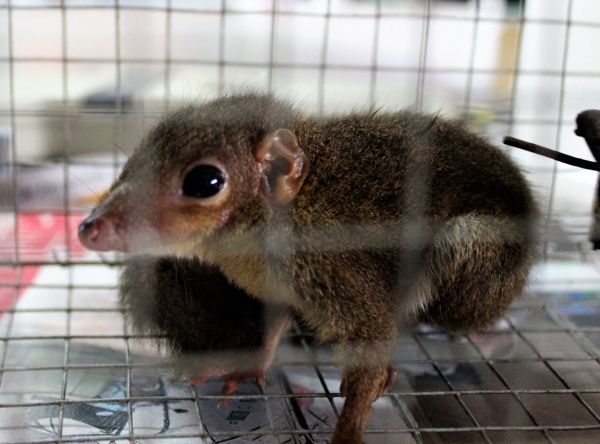As human activity shapes Earth’s climate, animals must increasingly adapt to new environmental conditions.
As human activity shapes Earth’s climate, animals must increasingly adapt to new environmental conditions. The thermoneutral zone — the ambient temperature range in which mammals can maintain their body temperature without expending extra energy — is a key factor in estimating a species’ ability to survive in a warming world.
Reptiles and other ectotherms that rely on the environment to regulate their body temperature are believed to be more vulnerable to global warming in the tropics than in temperate climates. However, less is known about small tropical mammals, especially those active during the day.
To better understand if small tropical mammals also have increased vulnerability as their environments heat up, Danielle Levesque, University of Maine assistant professor of mammology and mammal health, and collaborators from the Universiti Malaysia Sarawak studied Bornean treeshrews. They measured the oxygen consumption of the wild-caught lesser treeshrews (Tupaia minor) over a range of temperatures, calculating the animals' resting metabolic rate and thermoneutral zone.
Read more at University Of Chicago
Image credit: Anna Thonis




